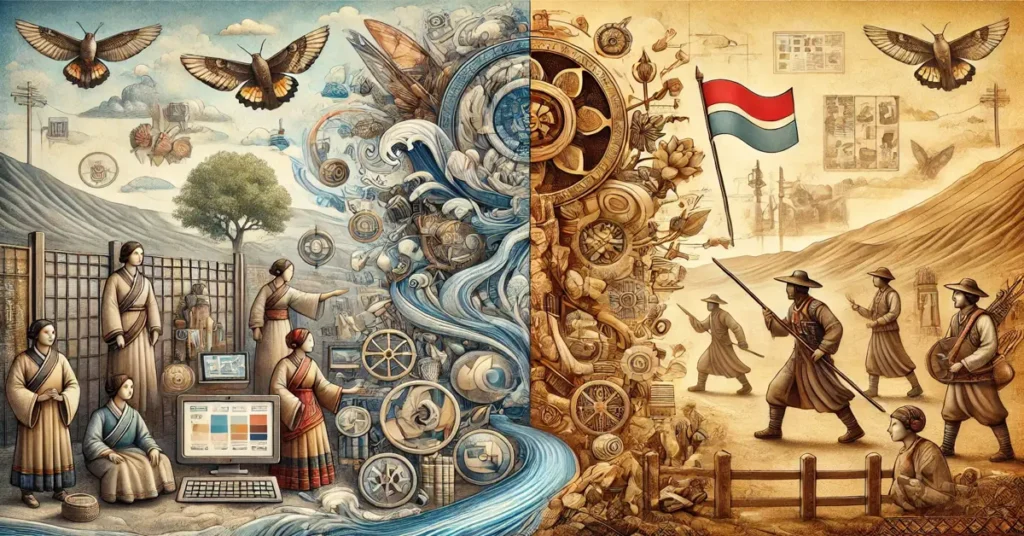Chipperen is a term that carries historical depth and cultural richness. It refers to a broad spectrum of traditional practices, ceremonies, and festivals that have evolved over centuries. Rooted in ancient rituals, Chipperen highlights the importance of community, marking key transitions in life, seasons, and society. This article explores the historical origins of Chipperen, its various forms and practices, and how it continues to influence modern society. We will also touch on related terms like chippers, wood chippers, and how these mechanical tools tie into the traditions and symbolism that Chipperen embodies in today’s context.
Chipperen, while often associated with cultural practices, has also found a new meaning in industrial and environmental sectors, particularly in forestry and landscaping. With the rise of modern tools like wood chippers, PTO wood chippers, and Bandit chippers, the term has taken on a new dimension in practical applications, merging traditional customs with contemporary technology. From wood chippers for sale to wood chippers for rent, these tools have become a crucial part of both professional and home projects, highlighting the continued relevance of Chipperen in modern life.
The Historical Roots of Chipperen
The roots of Chipperen can be traced back to ancient civilizations that used ritualistic practices to mark significant moments in agricultural, social, and spiritual life. In its earliest forms, Chipperen was a way for people to express their relationship with nature and the cosmos, ensuring a balance between human activities and the natural world. Early agricultural societies, for instance, practiced Chipperen during key moments in the planting and harvesting cycles. These rituals were believed to invoke the favor of deities and ensure bountiful crops.
Chipperen was not limited to agriculture but also extended into life’s major transitions. Weddings, births, and funerals were often accompanied by Chipperen ceremonies that blended community participation with spiritual observances. The term also became synonymous with seasonal festivals that celebrated the earth’s natural cycles, such as spring planting and autumn harvest festivals.
As time progressed, these Chipperen traditions absorbed elements from various other cultures. For instance, when different empires and cultures interacted through trade or conquest, elements of their customs were integrated into Chipperen rituals. This allowed Chipperen to evolve, adapting to new cultural and social influences while maintaining its core essence.
Chipperen in Modern Society
In today’s world, Chipperen continues to be celebrated, though its forms and expressions have shifted. Many communities still observe Chiperen festivals, though they have become more aligned with contemporary cultural contexts. The communal aspect of Chiperen remains vital, fostering unity and shared identity. Some modern Chiperen events may focus more on cultural heritage, serving as a way to preserve traditions in a rapidly changing world.
Chipperen also intersects with environmental and sustainable practices, particularly through the use of tools like wood chippers. While the ancient form of Chiperen dealt with cycles of nature, modern-day environmental challenges have led to a practical reinterpretation of the term, where tools like chippers help manage forestry resources responsibly. Whether it’s Bandit chippers, PTO wood chippers, or smaller wood chippers for sale or wood chippers for rent, these machines play a significant role in managing and recycling organic waste, transforming it into mulch or compost, thus giving back to the earth in a modern form of Chipperen.
The Role of Chipperen in Festivals and Celebrations
Festivals have always been a cornerstone of Chipperen. These vibrant events bring people together, allowing them to celebrate shared cultural values, showcase traditional music and dances, and preserve historical customs. Many Chiperen festivals are centered around agricultural cycles, marking times of planting, harvest, or seasonal changes. The festivals serve not only as a means of celebration but also as a reminder of the community’s deep ties to the earth.
In some regions, Chipperen festivals have become large-scale events, attracting visitors from all over the world who come to witness the rich cultural traditions and vibrant performances. Music, dance, storytelling, and crafts are key components of these festivals. Traditional instruments, intricate costumes, and elaborate performances often highlight the customs associated with Chiperen.
For example, some communities celebrate the end of winter and the coming of spring with rituals that symbolize renewal and rebirth. Dances that mimic the sowing of seeds or the growth of crops are performed as a way to honor the earth’s fertility. Such traditions are not just about entertainment but serve as a way to reconnect with the natural cycles that sustain life.
The Environmental Aspect of Chipperen: From Rituals to Wood Chippers
In addition to its cultural significance, Chiperen has found a modern interpretation in the world of environmental sustainability. As society has become more aware of the need to protect natural resources, traditional Chiperen practices that emphasized balance with nature have found resonance with contemporary environmental movements.
A key part of this modern environmental connection lies in the use of wood chippers, tools that allow for the efficient recycling of organic material. In forestry and landscaping, wood chippers are used to break down branches, leaves, and other organic debris into smaller, more manageable pieces. This mulch can then be used in gardens, farms, and landscaping projects, completing a natural cycle of decomposition and regrowth—a concept very much in line with the traditional values of Chiperen.
Tools like Bandit chippers and PTO wood chippers are often seen in industrial settings but are also available for home use. Many people look for wood chippers for sale or wood chippers for rent to manage their yards or farms, allowing them to turn waste into valuable mulch. In urban areas, finding wood chippers for rent near me has become a common way for homeowners and landscapers to manage large amounts of yard waste sustainably.
This form of modern Chipperen reflects the importance of environmental stewardship, a value that was central to the ancient practices of Chiperen. Just as traditional communities sought to honor the cycles of nature, modern-day users of wood chippers participate in a similar cycle of growth and renewal by turning organic waste into compost or mulch that enriches the soil.
Wood Chippers: A Modern Interpretation of Chipperen
Wood chippers play an increasingly important role in both professional and personal landscaping and forestry management. These machines break down large organic materials into smaller, more manageable pieces, making them essential tools for those looking to manage forested land or large garden spaces.
Bandit chippers, in particular, are known for their reliability and power, making them popular among professionals in the forestry industry. PTO wood chippers, which are powered by a tractor’s power take-off (PTO), are another common type, frequently used by farmers and landowners with large properties. Whether purchased through wood chippers for sale listings or rented through wood chippers for rent services, these tools offer an efficient solution for handling large amounts of wood waste.
For homeowners, renting a wood chipper can be a convenient and cost-effective option. Searching for wood chippers for rent near me allows individuals to find nearby rental services that provide high-quality machines for short-term use. This is especially useful for those who need a chipper for seasonal yard work or specific landscaping projects but do not require the constant use of such a machine.
The use of wood chippers in managing waste reflects a modern, practical interpretation of Chiperen’s traditional emphasis on working in harmony with nature. By breaking down wood and other organic materials into mulch, users are contributing to the natural cycle of decomposition and regrowth, creating a sustainable system that benefits the environment.
Chippers Lanes: A Modern-Day Social Chipperen
The idea of Chippers Lanes adds a unique and somewhat modern twist to the concept of Chiperen. While historically, Chipperen was tied to natural cycles and community gatherings, today, the term has been co-opted by various businesses, such as Chippers Lanes, a bowling and entertainment venue. Although seemingly unrelated, the communal aspect of gathering and socializing in Chippers Lanes retains a slight connection to the original spirit of Chiperen. It represents a place where people come together, much like in traditional festivals, to celebrate, enjoy entertainment, and foster social connections.
While the venue may not involve ritualistic customs or spiritual ceremonies, the gathering of people for communal enjoyment reflects a core element of Chipperen—building and maintaining strong community bonds.
The Future of Chipperen in a Changing World
As we look toward the future, the concept of Chipperen will likely continue to evolve. The principles of environmental stewardship, community connection, and the cyclical nature of life remain central to both ancient and modern interpretations of Chiperen. These values are becoming even more important as societies seek sustainable ways of living and managing natural resources.
The use of wood chippers and the role of technology in modern landscaping and environmental management is a prime example of how Chiperen has adapted to contemporary needs. At the same time, cultural festivals and celebrations that honor the original meanings of Chiperen continue to thrive, ensuring that the traditions and values of the past remain relevant in today’s world.
Chipperen’s future lies in its ability to adapt and remain relevant in an ever-changing world. Whether through the use of Bandit chippers, PTO wood chippers, or the ongoing celebration of cultural festivals, Chipperen continues to offer valuable lessons on how to live in harmony with the natural world and with each other.
FAQs About Chipperen
1. What is Chipperen?
Chipperen is a term that refers to a range of traditional practices, ceremonies, and festivals deeply rooted in ancient customs. It is tied to community gatherings, seasonal changes, and the balance between humanity and nature. In modern times, Chipperen has expanded to include environmental practices like the use of wood chippers for sustainable forestry and landscaping.
2. How do wood chippers connect to Chipperen?
Wood chippers, like Bandit chippers and PTO wood chippers, represent a modern, practical interpretation of Chipperen’s traditional focus on working in harmony with nature. By recycling organic material into mulch or compost, wood chippers contribute to the natural cycles of decomposition and regrowth, reflecting the core values of environmental stewardship found in Chipperen.
3. Where can I find wood chippers for sale or rent?
Wood chippers are widely available for purchase through various retailers, both online and in physical stores. You can also find wood chippers for rent through local rental services. Searching for wood chippers for rent near me can help you locate rental options in your area for short-term projects.
4. What is the significance of Chipperen festivals?
Chipperen festivals celebrate seasonal changes, agricultural cycles, and significant life events. They involve traditional music, dance, and community gatherings, serving as a way to preserve cultural heritage and strengthen social bonds.
5. What are Bandit chippers?
Bandit chippers are a type of heavy-duty wood chipper used in professional forestry and landscaping. Known for their reliability and power, they are often used to handle large-scale projects, breaking down branches and logs into smaller, manageable pieces.
6. How does Chipperen influence modern environmental practices?
Chipperen’s traditional focus on living in harmony with nature has inspired modern environmental practices, particularly in sustainable forestry and landscaping. The use of wood chippers to recycle organic material into mulch or compost is a practical way to embody Chipperen’s values of sustainability and environmental stewardship.







